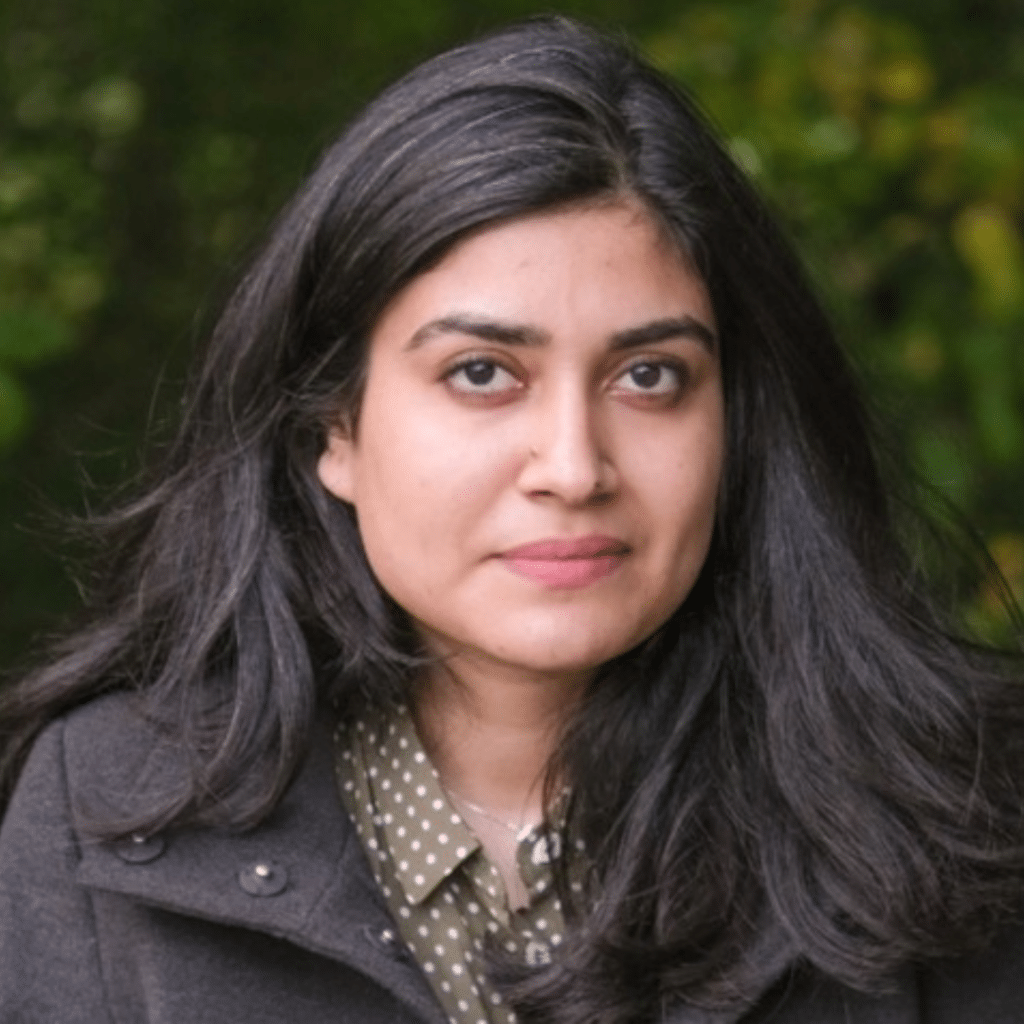Amid Flurry of Online Safety Laws, the Global Online Safety Regulators Network is Growing
Ramsha Jahangir / Mar 19, 2024National regulators in multiple countries are scrambling to adapt as a wave of online safety laws crashes down. From the European Union’s recently enacted Digital Services Act (DSA) to new Online Safety Acts (OSA) in the United Kingdom, Australia, Singapore, and Sri Lanka, each jurisdiction is setting its own course. The diversity of laws emerging around the world places significant responsibility on regulators to engage with service providers and with one another to establish clear codes, rules, dialogue, and guidance to create a safer online environment, all while avoiding conflict and fragmentation that may hinder the purpose of such legislation.
To support parallel regulatory developments, and jointly navigate global challenges, a group of national regulators has been exchanging notes under the umbrella of the Global Online Safety Regulators Network (GOSRN). By sharing information, best practices, and expertise, the network aims to create a more coherent and coordinated approach to online safety issues like cyberbullying, hate speech, and misinformation campaigns – problems that individual countries have struggled to address due to the global scale of online platforms and the internet’s decentralized nature.
Since the network launched in November 2022, it has grown from four regulators to a group of seven regulators and nine observers with representation from five continents: North America,
Africa, Europe, Australia and the Pacific, and Asia. Current members include an array of independent regulators tasked with ensuring online safety:
- eSafety Commissioner – Australia
- Arcom – France
- Coimisiún na Meán – Ireland
- Film and Publication Board – South Africa (Vice Chair)
- Korea Communications Standards Commission – Republic of Korea
- Office of Communications (Ofcom) – United Kingdom (Chair)
- Online Safety Commission – Fiji
“The challenges we face as individual regulators are universal: we’re national regulators working to mitigate harms in an international context, which includes the challenge of taking regulatory action against companies domiciled in other jurisdictions,” Julie Inman Grant, Australia’s eSafety Commissioner and founding GOSRN chair told Tech Policy Press.
Despite divergent national approaches, the network’s growth in its first year reflects the importance of inter-jurisdictional collaboration in online safety, and the recognition that these cross-border challenges require an international response. One recent example is the Israel-Gaza conflict. “[In response to the conflict] the network coordinated and supported members, sharing content and insights to make sure their engagements with industry were effective in reducing user exposure to violent – or terrorist and violent extremist – content,” said Inman Grant.
Building Bridges, Not Walls
A primary objective of the network is to promote regulatory coherence in the development of online safety regulation. With a flurry of laws – including the EU’s DSA and the UK and Australia’s Online Safety laws – now in effect, several online safety regulatory approaches are emerging around the world. For instance, there is a conflict in how these frameworks approach online safety and privacy – encryption, transparency reports, and age verification. How does one intend to achieve alignment between these elements while anticipating full compliance from all companies?
“Regulatory coherence doesn’t necessarily mean each legal and regulatory framework is identical, which cannot realistically be achieved, but rather it promotes a degree of alignment in objectives and outcomes sought,” said Inman Grant. “Collectively, we want to avoid the risk of a ‘global splinternet’ of inconsistent regulation by setting out a clearer and more consistent international framework for industry to follow,” she added.
“It’s worth noting that none of us see privacy and safety as diametrically opposed, as sometimes positioned by others. In fact, there are many instances where privacy and safety are mutually reinforcing,” said Inman Grant. “These are challenging and nuanced issues and a key goal of the network is to cut through the rhetoric and ensure that we’re arriving at the right policy and regulatory outcomes that help us achieve that appropriate balance,” she maintained.
The network’s position paper, on human rights and online safety, emphasizes the need for a deeper and shared understanding of online safety vis-à-vis its security, privacy and competition counterparts, including the Global Privacy Assembly and International Consumer and Enforcement Network (ICPEN).
According to GOSRN's new chair, UK’s Ofcom, regulatory divergence is a clear challenge but the hope is to enable greater global coordination around online safety regulatory toolboxes. “All of us share regulatory tools – risk assessments, codes and rules. We plan to publish a statement soon on what this kind of harmonization would look like,” said Jenna Omassi, who is leading the work of the GOSRN Secretariat and supporting the UK’s role as its new chair.
Preparing for Enforcement
So what happens after the notes are exchanged, could this collaboration also translate into joint investigations against online platforms in the future?
“As the network matures, we believe there is a possibility that it could evolve into a platform for leading joint investigations and enforcement actions,” said Soyoung Park of the Korea Communications Standards Commission. This evolution, added Park, would depend on the willingness and authority of member organizations within their jurisdiction to deepen their collaboration, streamline processes, and establish a framework for coordinated efforts.
“Alongside law enforcement, the network could serve as a valuable platform that connects relevant authorities and implement coordinated enforcement actions to effectively address cross-border online safety challenges,” she said.
Ofcom’s Omassi cautioned regulators to ensure their policies are workable, not just well-intended. “The impact of the tech industry, for good or for ill, is truly global though laws will continue to be local. So, it’s important to make sure technology companies cooperate and continue to comply, despite the challenges of jurisdictions and borders,” she said.
There is also the challenge of how these regulatory approaches impact small and non-profit platforms which increasingly need to spend more resources having to do different homework for different regulators. “We recognize these concerns and want to avoid an uncoordinated patchwork of regulatory regimes. We are focused on regulatory coherence to assist platforms of all shapes and sizes,” said Omassi.
Balancing New Powers for Regulators
While some of the systems and process-based regulations in democratic countries are centered on companies’ undertaking risk assessment about their human rights, many regimes in Global Majority are placing significant burdens on companies to identify the legality of content or monitor users at risk of penalties (in more alarming instances, there are significant criminal penalties for local staff or service disruption altogether). Recent examples include online safety regulations in Sri Lanka and Vietnam, where laws give governments more power over online content.
Prescriptive or not, these new norms – including new powers for regulators – have yet to be tested in practice. What steps, if any, is the network taking to ensure rights-respecting laws in the Global North are not copy-pasted in other political contexts to justify granting overbroad powers to regulators without adequate protections for free expression and user rights?
“Regardless of location, we would be concerned with any government using online safety regulation to pursue arbitrary, unlawful and politically motivated censorship,” said eSafety’s Inman Grant. “Independent regulators and democratic governments have a responsibility to regulate platforms in a manner that both minimizes harm and prioritizes and reinforces core democratic principles and human rights. That is why human rights, democracy and rule of law are criteria for network membership.”
As set out in the network’s online safety and human rights position paper, regulators themselves are required to uphold principles of transparency regarding regulatory processes and decisions, and accountability to individuals and communities, through regular public and multistakeholder consultations, and complying with oversight and review mechanisms.
Network members warned unchecked content regulation risked censorship but at the same time, a lack of online safety regulation could enable online abuse and self-censorship.
“Calling for legislation is the first step,” said Dr. Mashilo Boloka from South Africa’s Film and Publication Board, who presently serves as vice-chair of the network. “In the African continent, we need to change the mindset about regulation. We have to draw lessons from global best practices and use the network’s collective knowledge to start an online safety movement – tell them why we need a law that specifically deals with online safety only,” he said.
“Online platforms have a different way of dealing with the developed world - they respect their laws. We get calls from war-torn countries - our women and children are not protected online,” he regretted. Dr. Boloka said he had received a lot of interest from African countries such as Nigeria and Ghana, requesting guidance to help them shape online safety laws.
Highlighting challenges facing national regulators in Africa such as a lack of funding and technical resources, he hoped the network could be useful beyond information sharing and would help onboard regulators from countries where they need financial support and technical assistance.
Echoing similar sentiments, the Korea Communications Standards Commission said despite numerous in-person visits to company headquarters, it was challenging to fully convey their regulatory scope and work to global tech companies.
“We believe participating in the network could serve as a better communication channel to engage with tech companies and contribute to the development of more effective regulatory frameworks and policies, ensuring online safety for Korean citizens,” said Park.
Diversifying Stakeholder Engagement
The network aims to proactively engage with a range of stakeholders – such as other digital platform and media regulators, researchers, industry, governments, multilateral organizations and civil society. Last week, the network announced adding four civic and social organizations to its observers list.
“We have an international team at Ofcom to help enforce the Online Safety Act. Not all regulators have the same resources. We want to use the network to connect different stakeholders – it’s the first time a global group of regulators is coming together,” said Omassi.
Last year, during UNESCO’s “Internet for Trust” Conference, the network joined other media regulatory networks to endorse a statement expressing their will to “develop coherent regulation systems across regions.” The regulators iterated support for promoting independent online content regulatory systems, which must act “within the framework of the law and subject to the supervision of the judiciary and respecting fundamental rights, including the rights to privacy and freedom of expression.” Building on this past collaboration, regulators are convening under UNESCO’s Network of Networks initiative. This “global network of regulators,” supported by UNESCO, will gather again in Croatia in June to discuss online platform governance.
The GOSRN’s continued involvement in multilateral processes highlights the potential role of media regulatory networks in shaping discussions around global online safety standards. “Regulators are not usually given a seat on the table of multistakeholder and multilateral platforms. We want to step up this type of engagement,” said Omassi.
The Network aims to become a strong voice in global digital policy discussions and will continue to explore opportunities for collaboration and engagement with civil society, and multilateral and industry groups on both a formal and ad hoc basis.” “The goal is not just to listen to regulators but also have the right people around the table,” said Omassi, adding that Ofcom’s key goal for the year was to diversify its membership.
Authors

